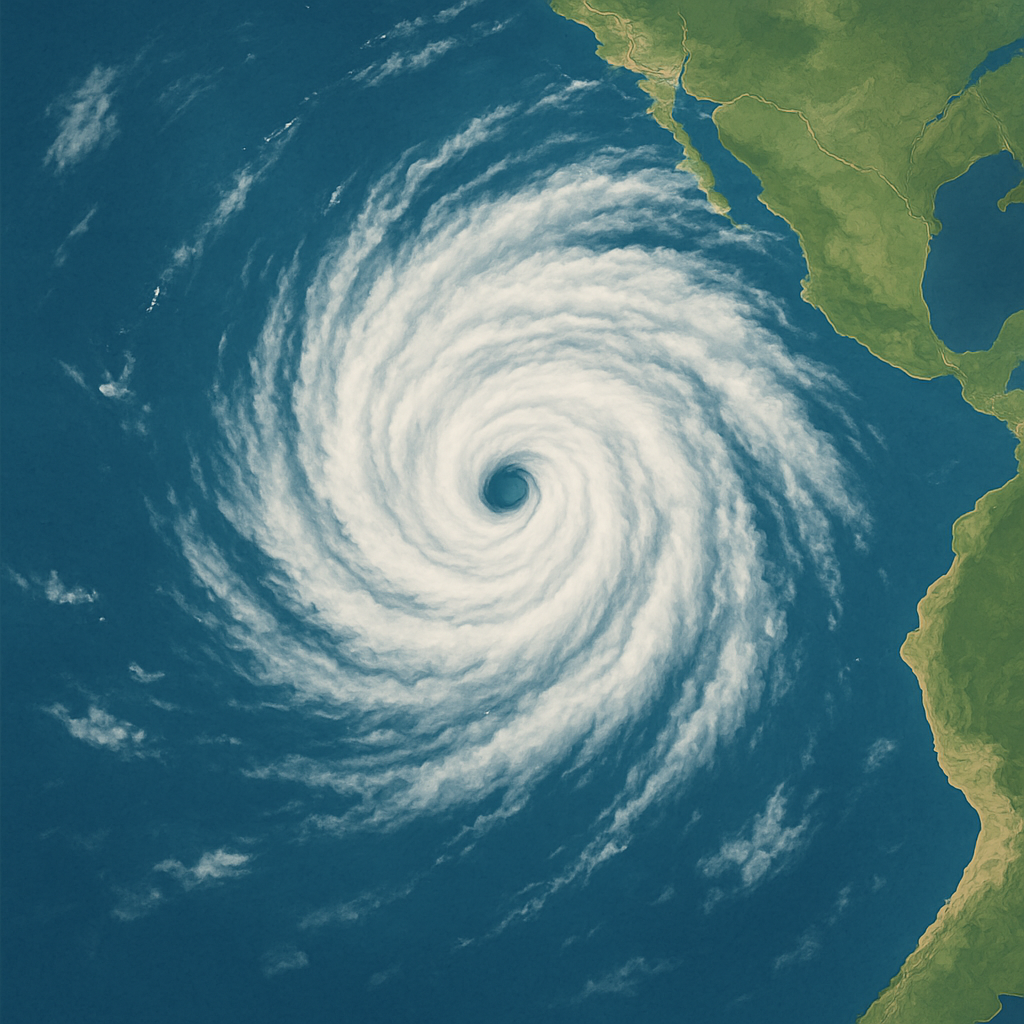
By Jenny Holly Hansen | WBN News | April 29, 2025
As we head into the 2025 Atlantic hurricane season, climate experts are raising early warning flags. Forecasters at Colorado State University (CSU), one of the most trusted authorities in hurricane research, are projecting a notably active season — and that has implications far beyond the southeastern U.S. coastline.
Above-Average Activity Forecasted
CSU predicts 17 named storms, including nine hurricanes and four major hurricanes (Category 3-5), each with sustained wind speeds exceeding 178 km/h. By comparison, the historical 30-year average stands at 14.4 named storms, 7.2 hurricanes, and 3.2 major hurricanes. In short, 2025 is shaping up to be more intense than the average season — a trend that continues to build year over year.
This year’s outlook is largely driven by unusually warm Atlantic Ocean waters, particularly in areas off the southeastern U.S. coast. According to NOAA’s Coastal Water Temperature Guide, ocean temperatures near Florida, Georgia, and the Carolinas are currently 2–5°F above seasonal averages. Warmer ocean waters act as high-octane fuel for hurricanes, enhancing both their strength and frequency.
The El Niño–La Niña Factor
Compounding this, CSU researchers are monitoring a shift from El Niño to La Niña conditions. While El Niño can suppress hurricane development by increasing wind shear — strong winds that disrupt storm formation — La Niña does the opposite. It removes that shear, opening the door for storms to build more easily and with greater intensity.
According to the latest data, the probability of El Niño persisting into peak hurricane season (August to October) is just 13%, making La Niña or neutral conditions much more likely. That climate setup historically correlates with elevated hurricane activity across the Atlantic basin.
Why This Matters in Canada
While hurricanes themselves may rarely make landfall in Canada as full-strength storms, their ripple effects are increasingly felt in the form of extreme rainfall, flash floods, high winds, and insured losses. Take Hurricane Debby in 2024 — a Category 1 storm by the time it reached Canada — which caused $2.5 billion in insured flood damage in Montreal after delivering 173 mm of rain in a single event.
The takeaway? Even smaller storms can bring outsized impact when urban infrastructure, aging stormwater systems, and dense population centers intersect with extreme weather.
Implications for Insurers, Brokers, and Business Owners
The forecasted uptick in hurricane activity calls for proactive planning across several sectors:
- For insurers, this signals another year of potential loss volatility. High event frequency could affect reinsurance costs, claims processing capacity, and regional risk models.
- For brokers, now is the time to help clients stress-test their coverage for flood, wind, and business interruption exposures — especially in sectors like retail, logistics, and construction that are sensitive to supply chain delays.
- For business owners, this is a reminder to revisit emergency plans, ensure infrastructure resilience, and confirm that business continuity strategies align with the changing risk landscape.
Looking Ahead
Climate volatility isn’t just an issue for coastal jurisdictions — it’s a growing national challenge. Warm Atlantic waters and La Niña conditions create the perfect conditions for a hyperactive hurricane season, and those storms can send shockwaves across Canada’s economic and insurance ecosystems.
The time to prepare is before the clouds roll in.
Let’s Keep Talking:
Jenny is a business insurance broker with Waypoint Insurance.
She is also a business development consultant with Impresario Partners, helping Canadian Business expand overseas.
She can be reached at 604-317-6755 or jholly-hansen@wbnn.news. Connect with Jenny on LinkedIn at https://www.linkedin.com/in/jenny-holly-hansen-365b691b/. Connect with Jenny at BlueSky: https://bsky.app/profile/jennyhollyhansen.bsky.social
Let’s Meet Up:
Jenny Holly Hansen is a cohost with Chris Sturges of the Langley Impact Networking Group. You are welcome to join us on Thursday’s from 4pm to 6pm at: Sidebar Bar and Grill: 100b - 20018 83A Avenue, Langley, BC V2Y 3R4
TAGS: #Jenny Holly Hansen #Canadian Risk Management #2025 Atlantic Hurricane Season #Colorado State University (CSU)



